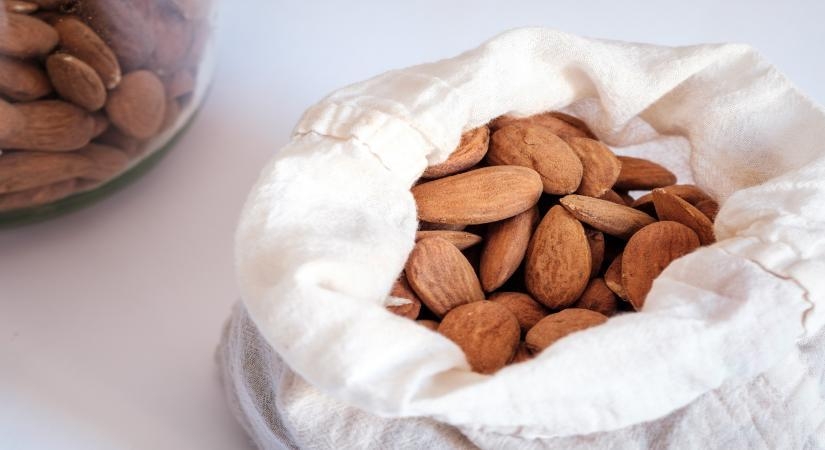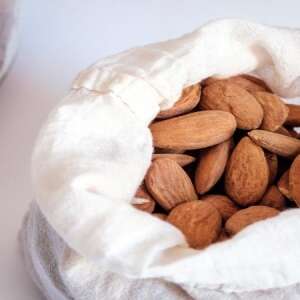The study included non-smoking participants who were mildly overweight and occasionally physically active but were not trained athletes. A limitation of this study is that the results are not generalizable to populations with other demographic and health characteristics…reports Asian Lite News
A new study found that eating almond reduces feeling of muscle soreness during exercise recovery which translates to improved muscle performance during a vertical jump challenge. These results expand on prior research which looked at how almonds affect muscle recovery after exercise.
In the new research study, published in Frontiers in Nutrition and funded by the Almond Board of California, 25 mildly overweight middle-aged men and women performed a 30-minute downhill treadmill run test after eight weeks of consuming 57g (two ounces) of whole raw almonds daily. The control group ate a calorie-matched (86 g/three ounces) snack of unsalted pretzels. The treadmill test was designed to cause muscle damage to see how almonds affected muscle recovery.
Researchers measured participants’ muscle function; blood markers of muscle damage and inflammation; and perceived muscle soreness using a visual scale, before, during, and at three time points after the treadmill test. They also measured markers of cardiometabolic health, body composition, and psycho-social assessments of mood, appetite, and well-being at baseline and after eight weeks of almond snacking.
Participants who ate almonds experienced an almost 25 percent reduction in muscle soreness when performing an explosive power exercise (a vertical jump challenge) over the cumulative 72-hour exercise recovery period. The perceived reduction in soreness translated to better muscle performance during the vertical jump challenge in the almond group versus the control. No significant differences were observed in measures of cardiometabolic health, muscle damage/inflammation, mood state, or appetite for the almond group or the control group.
The study included non-smoking participants who were mildly overweight and occasionally physically active but were not trained athletes. A limitation of this study is that the results are not generalizable to populations with other demographic and health characteristics.
“Our study suggests that snacking on almonds can be recommended to occasional exercisers as a go-to food to help fitness recovery after strenuous exercise,” said Dr. Oliver C. Witard, Senior Lecturer in Exercise Metabolism and Nutrition at Kings College London. “Almonds are naturally nutritious with protein, good fats and the antioxidant vitamin E. They can be considered an ideal food for fitness.” One serving of almonds (28 g) has 4 g of plant protein, 13 g of good unsaturated fat and only 1 g of saturated fat.
ALSO READ-Bite sized deliciousness: Laddooh by Chef Sugandha Saxena












